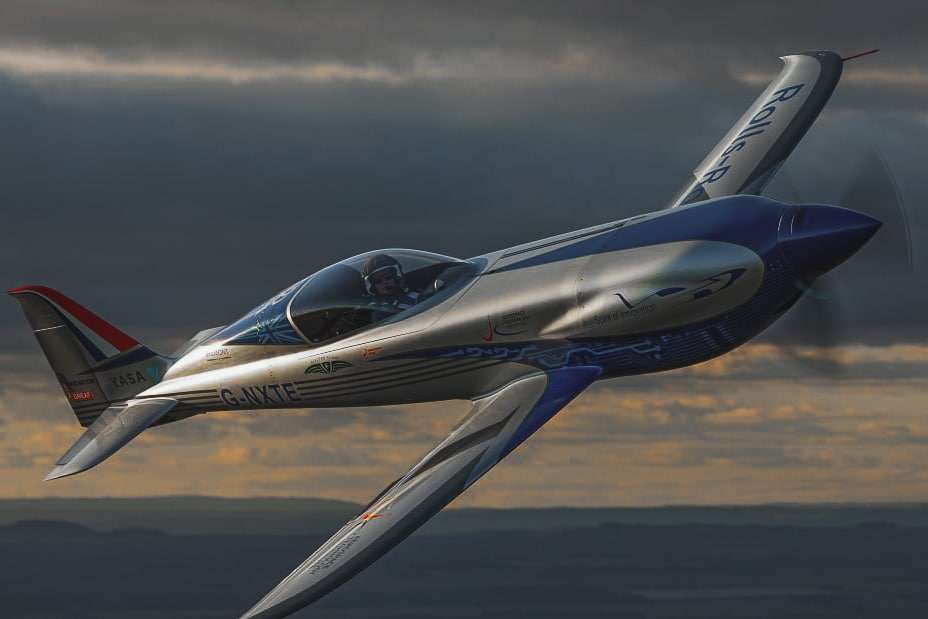The first-ever net-zero transatlantic flight is expected to take to the skies next year, nearly a century after Charles Lindbergh was the first to cross the Atlantic by plane.
By the end of 2023, the world will see the first transatlantic flight powered entirely by sustainable aviation fuel (SAF), according to U.K. Transport Secretary Grant Shapps, who unveiled the plans last week.
Shapps made the announcement while visiting the U.S., where aviator Charles Lindbergh began the world’s first transatlantic flight in 1927.
“This trailblazing net zero emissions flight, a world first, will demonstrate the vital role that sustainable aviation fuel can play in decarbonising aviation in line with our ambitious net zero targets,” Shapps said.

The move is part of the UK’s participation in the Jet Zero Council, a partnership between industry and government in reducing aviation emissions. The U.K. government says it’s committed to accelerating the use of 100 percent SAF. The aviation industry is responsible for about 2.1 percent of all emissions, but about 12 percent of all transport-related CO2 emissions, according to recent statistics.
“It’s crucial that we place sustainability at the heart of the aviation industry’s recovery from COVID-19,” Shapps said. “I look forward to working with them on this challenge, which will lower the impact flying across the Atlantic has on the planet.”
Net-zero flights
The Department of Transport says delivering a transatlantic flight powered by renewables would help the industry gather data needed to support “ongoing and future work to test and certify sustainable aviation fuel while exploring how engine efficiency improvements, flight optimisation, and greenhouse gas removals can contribute to achieving net-zero flights.”
“UK airlines strongly support the development of a UK SAF industry, which will play a vital role in helping our sector deliver net zero emissions by 2050, as we are committed to doing,” Tim Alderslade, Airlines UK CEO, said in a statement.
“This announcement will provide additional momentum to achieving this and, alongside the recent £180 million in Treasury support for the development of new UK SAF plants, demonstrates the commitment of government to making SAF a key part of the decarbonisation of aviation,” he added.

SAF can be made from waste materials including used cooking oil and food scraps as well as crop byproducts. Shifting to 100 percent SAF would deliver a net-zero emissions flight.
Currently, flights using SAF are mixing with conventional fuel—the maximum allowable amount is 50 percent SAF. In the U.S., the first SAF-powered flight happened late last year, going from Chicago to Washington D.C. But aircraft producers such as Rolls-Royce, have been testing larger commercial engines fully powered entirely by SAF with no issues.
“This is an exciting and ambitious challenge, which Rolls-Royce is ready to support having successfully tested our large commercial aero engines on 100 percent sustainable aviation fuel over the last year,” Warren East, CEO of Rolls-Royce, said.
“We have the technology to help the UK government achieve its objectives and we look forward to working closely with them to deliver this milestone transatlantic flight.
“Just over 100 years ago, Rolls-Royce powered the first-ever transatlantic flight and now we have the innovation and expertise to power the next generation of sustainable aircraft.”
SAF
By the end of next year, all of Rolls-Royce’s Trent engines will be compatible with 100 percent sustainable jet fuel, the company announced last year.
It’s also exploring the trickier electric engines for aircraft. In January, it broke two speed records for an all-electric aircraft, with its first electric plane The Spirit of Innovation, named in honor of Lindbergh’s Spirit of St. Louis.

“The advanced battery and propulsion technology developed for this programme has exciting applications for the Advanced Air Mobility market,” East said at the time.
“This is another milestone that will help make ‘jet zero’ a reality and supports our ambitions to deliver the technology breakthroughs society needs to decarbonise transport across air, land and sea.”
Illinois-based LanzaTech will also figure in the SAF future and possibly next year’s transatlantic flight. It turns captured carbon into jet fuel as well as materials that can be used in yarn. It partnered with Zara last year on a dress made from its carbon-captured yarn.
Jennifer Holmgren, CEO of LanzaTech, says waste-based feedstocks are important as they offer “an economic path to much-needed volumes of sustainable aviation fuel.”
“We applaud the UK government’s leadership in working with industry and setting ambitious goals for the aviation sector,” she said. “It is only by working together, that we will see the transformative change needed to deliver on the commitments to meet Net-Zero.”


